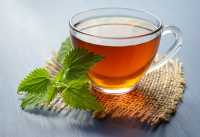MedicalResearch.com Interview with:
Wenji Li, MMed, PhD
Postdoc Associate
Department of Pharmaceutics
Ernest Mario School of Pharmacy
Rutgers, The State University of New Jersey
Medical Research: What is the background for this study? What are the main findings?
Dr. Li: Hypertension is a vital risk factor for many serious disorders. Male and age ≥40 years were found to be highly associated with more severe hypertension. In Singapore, the prevalence of hypertension increased markedly from age 40 years onwards. Tea, a popular beverage in Chinese people, has been approved to possess many beneficial pharmacological effects including antihypertension. However, no clinical studies on the correlation between
tea drinking and its effect on lowering blood pressure among Singaporeans have been conducted. To find out the potential link, we are the first to investigate the correlation of hypertension and consumption of tea, health supplements, living habits and socio-demographic factors among Singaporean Chinese residents.
By the large scale cross-sectional epidemiology study (N = 1184), we found the prevalence of hypertension among the whole investigated population was 49.73% and the prevalence increased to 66.47% in the sub-population aged ⩾60 years. High risk of hypertension was associated with age ⩾60 years, obesity, family history of hypertension, diabetes history, hyperlipidemia history, male and
coffee intake. In contrast, drinking green tea at least 150 ml per week was associated with lower hypertension risk. Drinking combination of green tea and British tea was associated with higher reduction in the risk of hypertension. This study suggests that consumption of tea, especially green tea and British tea, is beneficial for lowering the risk of hypertension while the consumption of coffee may have the opposite effect.
(more…)




